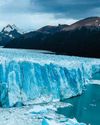Study finds that Earth's core is 'leaking' gold
Issue 205
|How It Works UK
Researchers have found evidence that Earth's core is leaking gold and other precious metals, according to a new study. The vast majority (99.9 per cent) of Earth's gold and other precious metals are hidden in the centre of our planet, with thousands of miles of near-impenetrable rock between us and these natural treasures. However, while humans are unlikely to ever mine Earth's core, new research indicates that some metals have migrated out of the core into enriched rocks that eventually ended up at the surface.

While investigating volcanic rocks in Hawaii, a team of scientists identified signs of the precious metal ruthenium, a platinum group metal, that they conclude could only have come from the core-mantle boundary, more than 1,800 miles below the surface. "When the first results came in, we realised that we had literally struck gold!" said Nils Messling, a researcher in the geochemistry department at Göttingen University in Germany. "Our data confirmed that material from the core, including gold and other precious metals, is leaking into the Earth's mantle above."
هذه القصة من طبعة Issue 205 من How It Works UK.
اشترك في Magzter GOLD للوصول إلى آلاف القصص المتميزة المنسقة، وأكثر من 9000 مجلة وصحيفة.
هل أنت مشترك بالفعل؟ تسجيل الدخول
المزيد من القصص من How It Works UK
How It Works UK
20 WEARABLE HEALTH TRACKERS
Whether you strap a wellness coach to your wrist or weave subtle sensors into your clothes, these devices are revolutionising how we track our health
9 mins
Issue 210
How It Works UK
SUPERPOWERED PLANTS
The world of plants is vibrant and diverse, just like this book.
1 min
Issue 210
How It Works UK
SECRET STORIES OF LOST BEASTS
We're all aware of the mighty dinosaurs that once roamed Earth, but there are so many weird and wonderful species that have been lost to time.
1 min
Issue 210

How It Works UK
ALL ABOUT BLIMPS
Is it a bird? Is it a spaceship? No... it's a non-rigid airship
2 mins
Issue 210
How It Works UK
SUPER QUESTERS MISSION: RAINFOREST MAGIC
Join adventurers Leo, Lilli and Bea as they transform into superheroes and journey to the rainforest in the pursuit of knowledge.
1 min
Issue 210

How It Works UK
HOW THE MIGHTY MAMMOTH RULED THE ICE AGE
Meet the prehistoric giants that roamed the Arctic Circle thousands of years ago
4 mins
Issue 210
How It Works UK
Have they found LIFE ON MARS?
Although it's by no means certain, scientists are slowly accumulating evidence that life once existed on the Red Planet
2 mins
Issue 210

How It Works UK
HOW FAST DO GLACIERS MOVE?
The speed at which a glacier flows depends on its mass, the depth and slope of the underlying rock bed and friction.
1 min
Issue 210

How It Works UK
HOW IN-FLIGHT WI-FI WORKS
This technology allows you to scroll to your heart's content while killing time at cruise altitude
3 mins
Issue 210

How It Works UK
HOW WIGWAMS WERE BUILT
Discover the construction and living conditions inside these traditional domed dwellings
1 mins
Issue 210
Listen
Translate
Change font size

